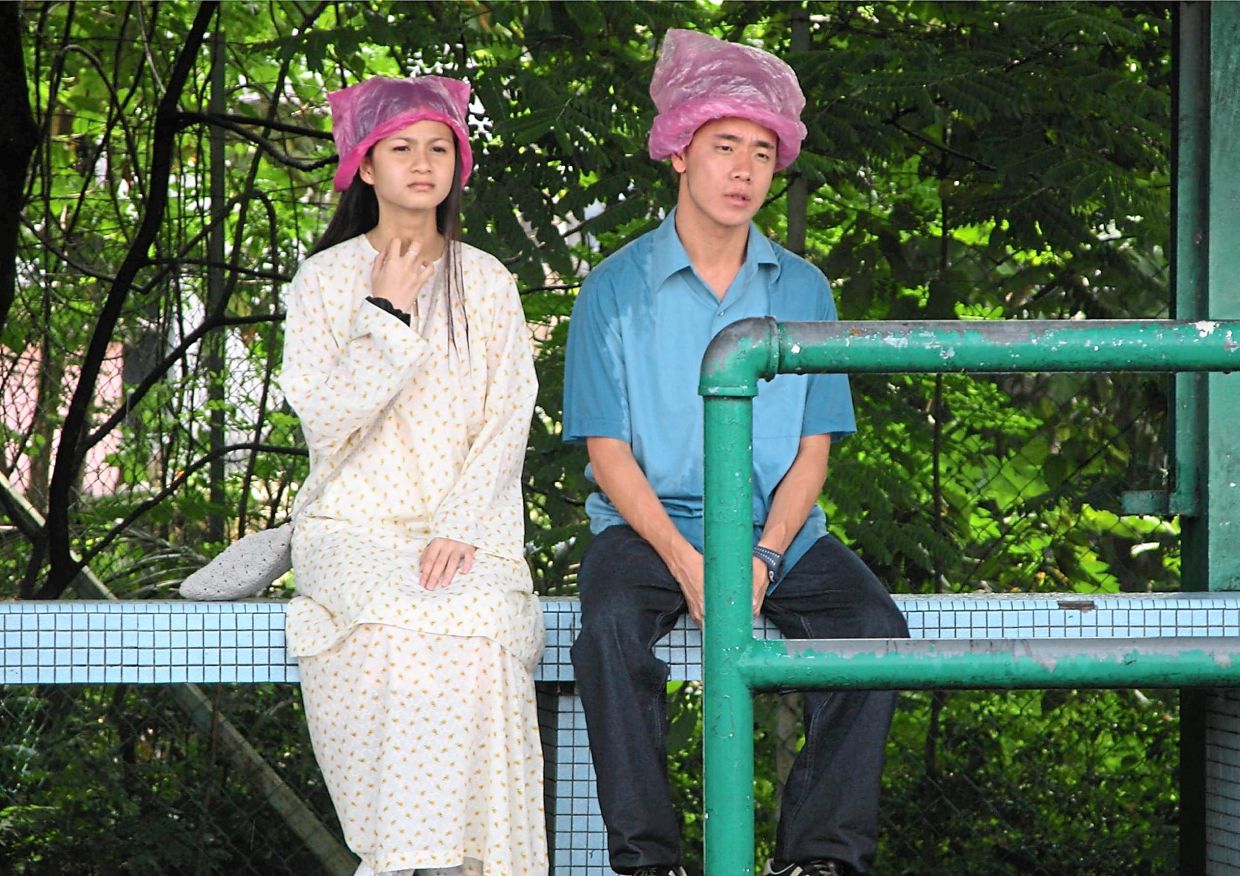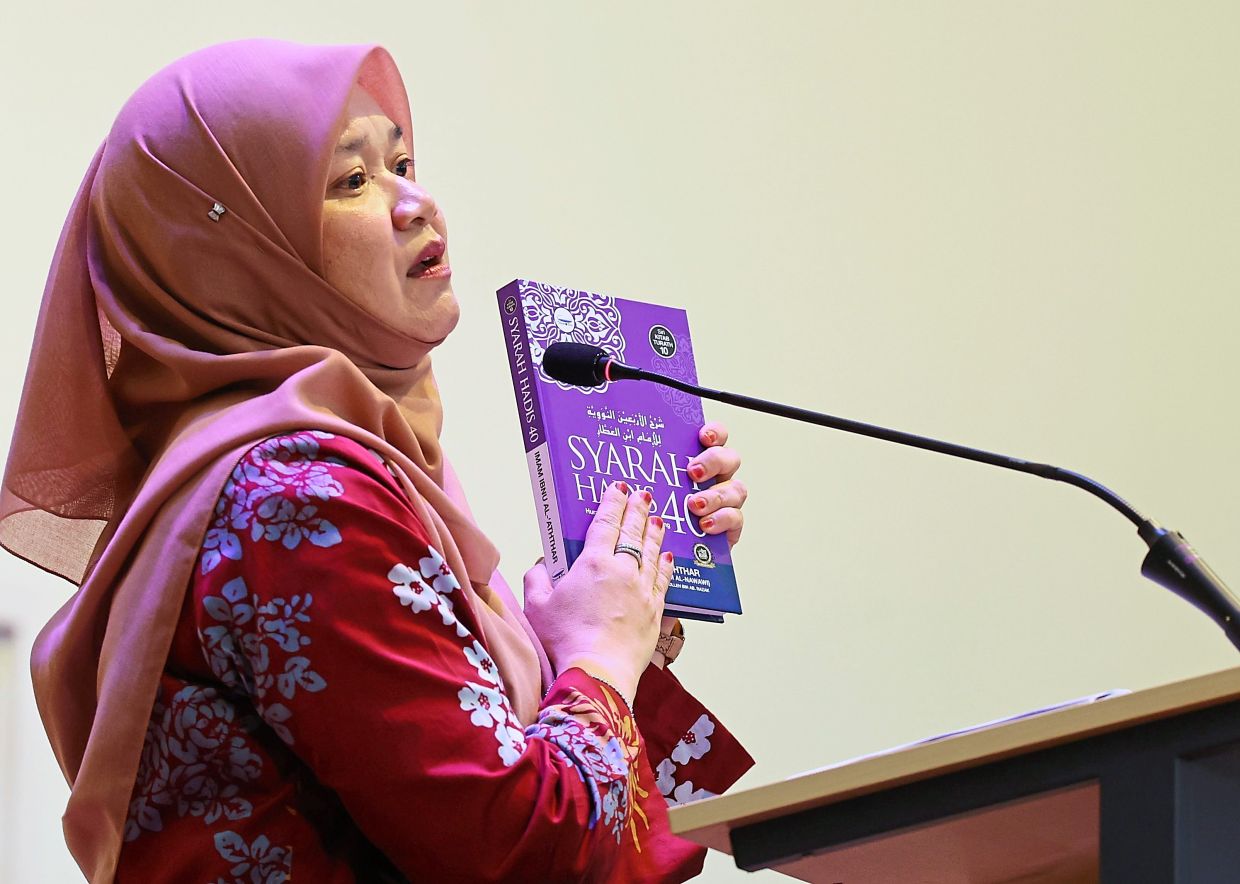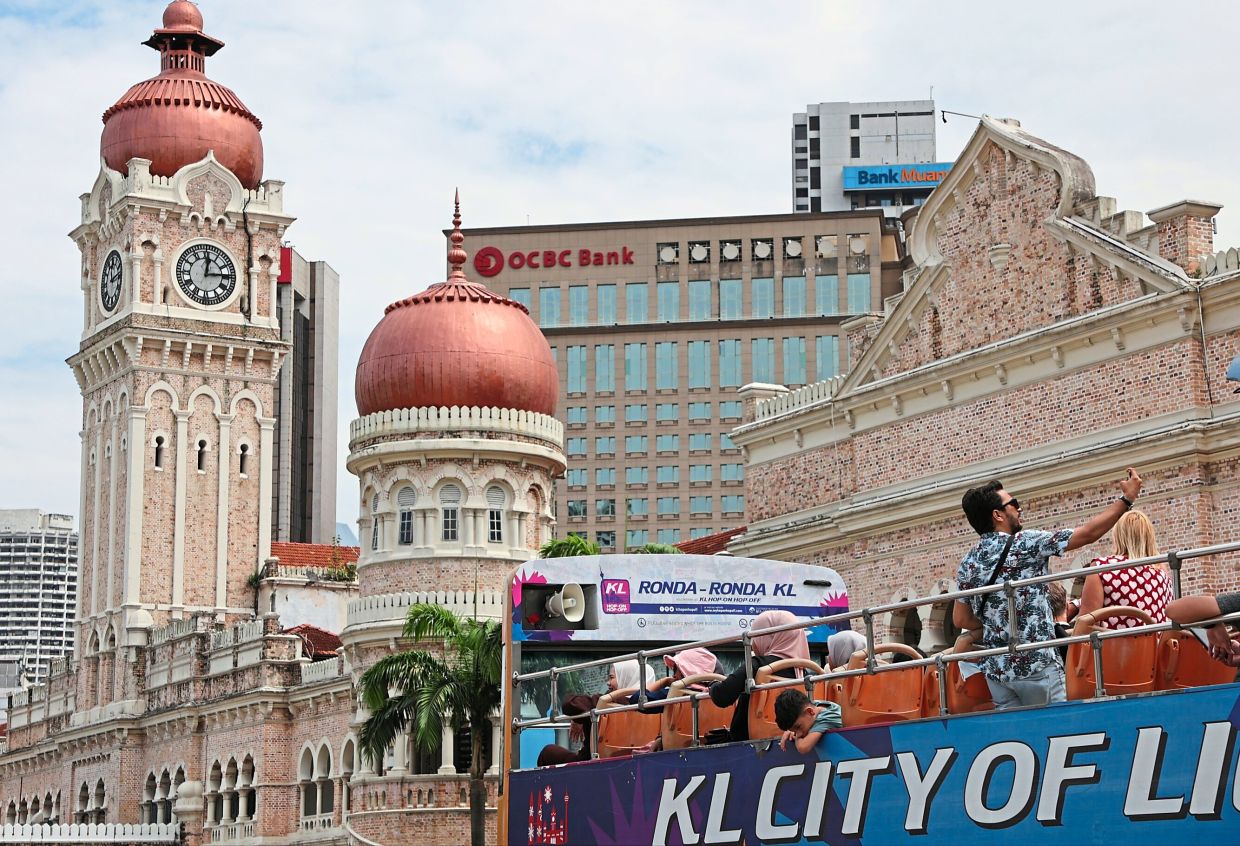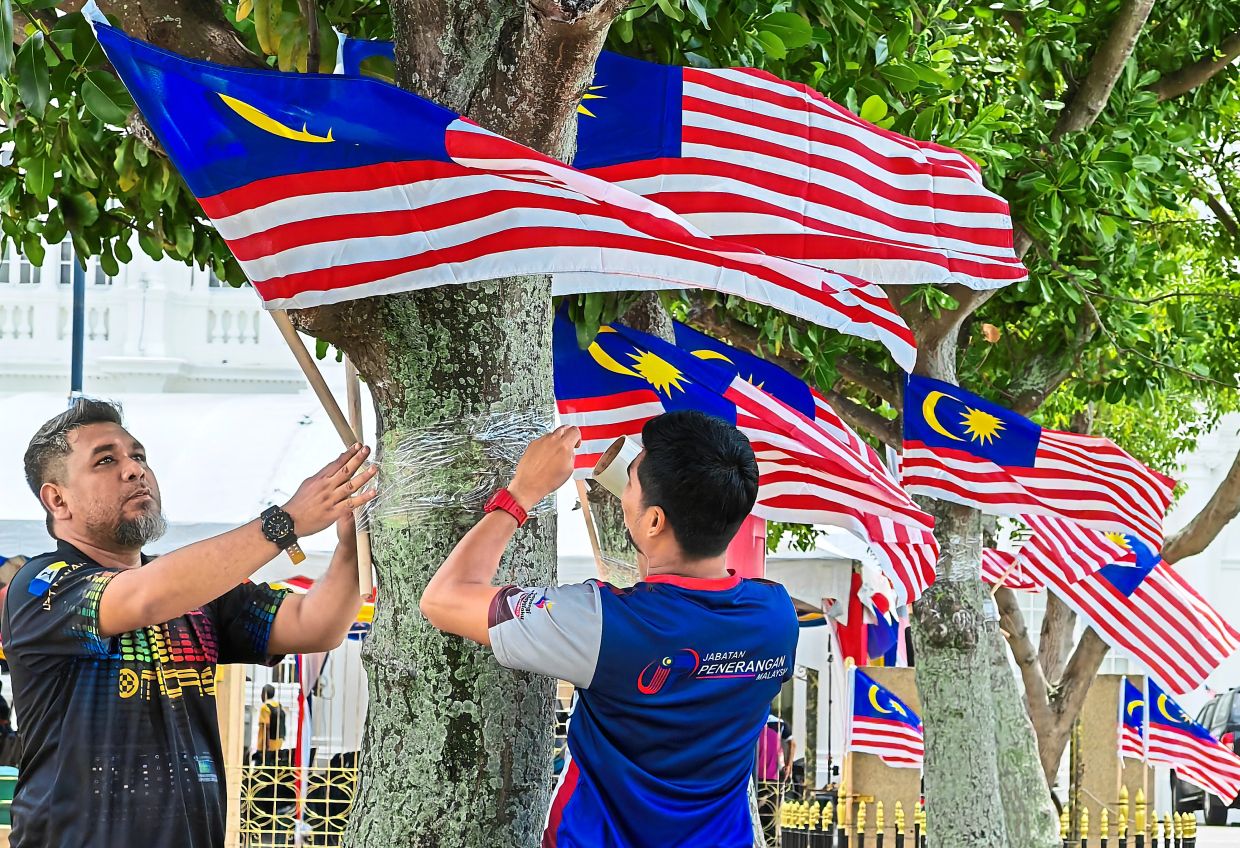AROUND this time in 2000, I was seated in a hotel room in Kuala Lumpur with the late Singapore leader Lee Kuan Yew.
It was his first visit to Malaysia in 10 years and he was eager to be updated on our country.
The Singapore High Commission had arranged a series of small meetings. I was chosen to meet the legendary founding father of Singapore with five other young newspaper editors.
The lanky statesman looked serious and didn’t act like he was prepared to make small talk to break the ice.
We were aware of his reputation for being intimidating and intellectually strong. We had all heard numerous stories of him expecting members of the media to be well prepared for any interview he granted.
But he was pleasantly relaxed. It was his three aides who looked tense as they took notes.
“Young man, speak your mind. Tell me what you think. I am not a mind reader,” he said, looking at me to start the discussion.
And the off-the-record conversation flowed from there.
Last week, I decided to read an article I had written for The Straits Times in 2015 to recollect what we had discussed.
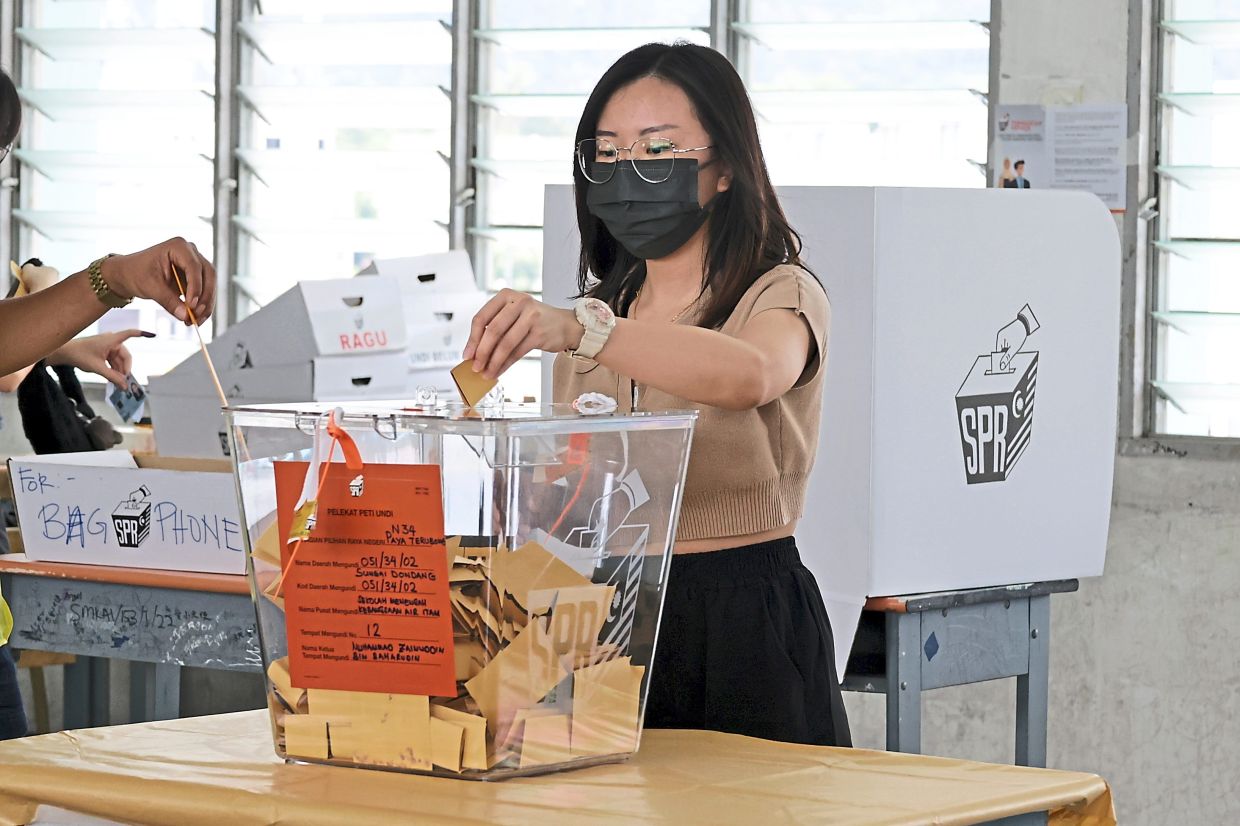
Changing political stage: A young voter casting her vote during the recent state elections. Most non-Malays simply can’t accept the kind of politics preached by PAS, but a generational transformation is taking place in the Islamist party. — CHAN BOON KAI/The Star.
Top of the discussion of issues dividing the two countries included Malaysia’s supply of water to Singapore, the relocation of Customs and Immigration facilities for Malaysian rail passengers on the island and the withdrawal of Malaysian funds from the republic’s pension scheme.
But the topic that struck me the most and remained etched in my memory was Lee’s questions on the position of PAS.
I would say that it appeared to unsettle him. He made no secret of his concern that young Malays were drawn to PAS.
It disturbed him that the Islamist party was becoming a serious player in the political landscape, with only moderate Muslims and non-Muslims keeping it from becoming more influential.
PAS’ growing impact and the controversial issues about race and religion may have been a Malaysian problem by then, but it was also a cause for concern for the predominantly Chinese population of Singapore.
I remember Lee asking me if I thought PAS would come to power at the federal stage, and if memory serves me right, I told him I didn’t believe PAS would ever form the federal government.
He didn’t respond to my theory, as expected. After all, he wouldn’t have wanted to be drawn into any Malaysian domestic issues.
But fast forward to 2023, and if I were to be asked the same question by his son, Lee Hsien Loong, the present PM of Singapore, I believe I would offer a more guarded reply.
PAS’ growing clout isn’t a concern for just non-Malays in Malaysia, but also for our neighbours and even the world.
The spectre of an Islamic state in Malaysia is no longer something to dismiss. It is increasingly becoming real.
It’s now the largest party in Malaysia, with 49 parliamentary seats from the 222, while the DAP has 40. Bersatu, PAS’ ally, has 26 seats.
Pakatan Harapan has 80 seats (PKR 31, DAP 40, Amanah seven and Upko 20. Pakatan is supported by Barisan Nasional, which has 30 seats — Umno 26, MCA two, MIC one and PBRS one).
Gabungan Parti Sarawak has 23 seats (PBB 14, SUPP two, PRS five, PDP two) while Gabungan Rakyat Sabah has six (direct members four, PBS one, Sabah STAR one). The others are made up of Warisan (three), KDM (two), PBM (one) and Muda (one), and independents (one).
As PAS continues to increase its seats at parliament and state levels, it’s likely that the Islamist party will become stronger in the coming years. It already has control of Kedah, Terengganu, Kelantan and Perlis. The party has shut down gaming outlets in Kedah and Perlis, while in Terengganu, gender segregation seating has been imposed in cinemas. In Kelantan, the curtains have come down on cinemas.
Last week, PAS Youth ordered a hotel resort to stop promoting the Songkran Water Festival, saying it had religious connotations, with the organisers relenting and apologising – with the word “Songkran” dropped as a compromise. Songkran comes from the Sanskrit word meaning “passing” or “approaching,” and is a water festival in Thailand, which is celebrated in April every year.
Since Perikatan Nasional’s emphatic victory, there has been much debate over whether the swing towards Perikatan resulted from the continuous support for PAS, or more accurately, a Malay display of resentment towards the Pakatan government – unhappiness at the leadership in Umno and the alliance with the DAP.
Sacked Umno leader Khairy Jamaluddin, for example, disagrees with the term “green wave,” which suggests “something that is deeply ideological.” In an interview with The Edge, he said that “the Malay voters just don’t want to give it (their votes) to Pakatan-Barisan” because “they can’t stomach Umno.”
He dismissed the existence of Malay extremism but admitted to a “Malay dissatisfaction with Umno, the Unity Government and economics.”
Khairy echoed what many others have said to Datuk Seri Anwar Ibrahim. The Prime Minister needs to fix the economy. Not immediately, but yesterday, having been PM for the last nine months.
Yes, he has inherited many structural problems, which can’t be undone overnight, and yes, he has managed to get billions of ringgit from investors, but he has to be seen to put his entire machinery on the economy.
The PM can use effective communications platforms to explain more clearly and in simpler terms, how his Madani concept stands for sustainability, care and compassion, respect, innovation, prosperity, and trust, which is his policy framework and government slogan.
Anwar doesn’t have the benefit of time on his hands. A week may be regarded a long time in politics, so the saying goes, but with four more years to go, that’s a short time.
If the unity government doesn’t move fast and competently enough, it won’t be surprising if Perikatan comes to power one day.
Pakatan should stop taking for granted that the non-Malay votes are fixed deposits. Pakatan was repeatedly warned before the state polls, but the coalition didn’t take it seriously.
In the end, an analysis conducted by political scientist Bridget Welsh reportedly showed a decline of 21%, 19% and 12% in Indian votes respectively for Pakatan in Negri Sembilan, Penang and Selangor.
On the other hand, the Indian votes for Perikatan in Penang, Negri Sembilan and Selangor, increased by 29%, 19% and 14% respectively. In general, there was a 15% drop in Indian votes, according to former DAP Member of Parliament Charles Santiago.
Right now, PMX isn’t a popular person among the Indian voters, following a series of mishaps.
The Chinese remained solidly with Pakatan because they simply can’t accept the kind of politics preached by PAS president Tan Sri Abdul Hadi Awang, but a generational change is taking place in the Islamist party.
Anwar will be 80 years old by the next general election while Hadi, who has a history of health issues, would be 79. Tun Dr Mahathir Mohamad would be 103 years old.
The political stage will surely be completely different. Younger PAS leaders with professional backgrounds and even Western training will emerge, and they would want to present a more progressive image.
It is necessary for PAS to start building bridges with the media and non- governmental organisations. The party has shut itself completely off from the media since the state elections following a gag order. PAS is here to stay, make no mistake, and it has to have a relationship with the non-Muslim groups.
But the question here is whether the non-Malays, including the bumiputra from Sabah and Sarawak, trust PAS enough, or if the non-Malays have become so insignificant and marginalised that their votes don’t matter anymore.
Anwar must win over the predominant Malays, but he can’t be perceived to be afraid of giving other Malaysians their rightful place in this country.




